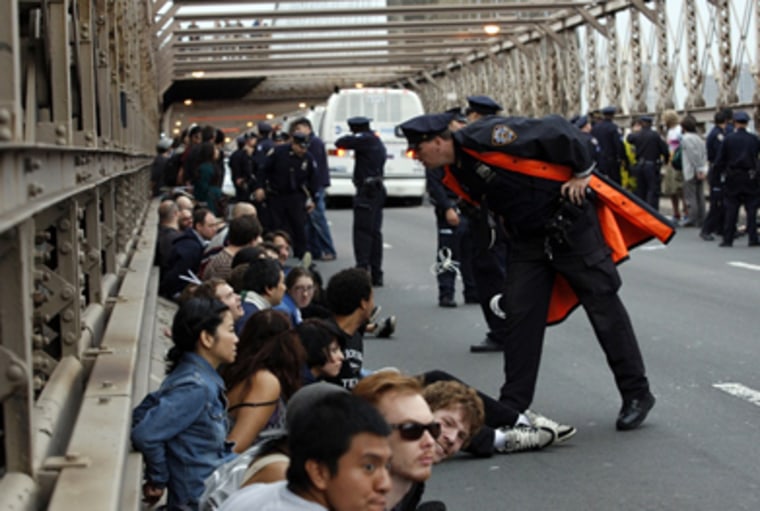Twitter is appealing a judge's ruling to hand over to prosecutors the tweets and account information of an Occupy Wall Street protester.
The protester, Malcolm Harris, is being tried for disorderly conduct in connection with the Occupy Wall Street march on the Brooklyn Bridge last fall. Authorities are trying to use Twitter posts made by Harris between September and December 2011 to prosecute him.
Harris has also filed a civil proceeding to block Criminal Court Judge Matthew Sciarrino's ruling that the information be turned over to the Manhattan district attorney's office.
In its filing Monday, Twitter asks the court to reverse the judge's order that it turn over the information. In part, Twitter said:
Did the trial court err in ruling that over 3 months of Defendant’s Tweets are unprotected by either the Fourth Amendment to the U.S. Constitution or art. I, § 12of the New York Constitution when the U.S. Supreme Court and New York Court of Appeals have respectively held that the government must obtain a search warrant in order to gather data about a suspect’s public movements for periods of 28 and 65 days? Yes.
The American Civil Liberties Union plans to file a brief in support of Twitter.
In a blog posting ACLU attorney Aden Fine wrote that "the information demanded by the DA includes not only the contents of Harris’s tweets, but his private subscriber information — including the IP addresses he used to access Twitter over three-plus months, which can reveal his physical location throughout that entire period."
The D.A.'s office "also asked for the date, time, and duration of each of his Twitter sessions. By denying Twitter’s and Harris’s challenge, the court held that the government can access this wealth of sensitive personal information without satisfying basic constitutional protections. That isn't right."
So far, the Manhattan D.A.'s Office has declined to comment on the appeal.
Check out Technolog, Gadgetbox, Digital Life and In-Game on Facebook, and on Twitter, follow Suzanne Choney.
